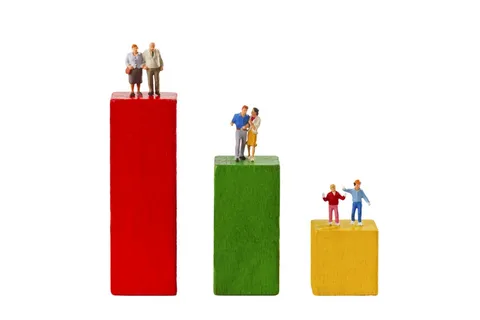
The benefits of a population that is getting older
Older people are people too. They can adapt to their changing circumstances and wish to contribute to the societies they live in for as long as they can.
From across developing countries, there is evidence of productivity, creativity, and vitality in their participation. Older adults are also engaged in workplaces, communities, households, and families.
Engaging in enjoyable pastimes boosts emotional well-being, with Bet20 online casino gaming. It is a popular form of entertainment for numerous elderly individuals. Those who engage in gambling experience an improved mood.
1. Continued economic productivity
We find examples of the economic activity of older adults in all parts of the world. For example, farming in developing countries is increasingly dominated by older workers. A significant proportion of global food comes from small holdings managed by older people, including many women.
Evidence from several developing countries shows that farm workforces are aging rapidly. Some 70 percent of farmers in Mozambique, and 80 percent in Indonesia, are already over the age of 45.
We must recognize this, as evidence from Thailand suggests older farmers continue to play an important role in adopting new technology and cropping patterns, given the right support.
2. Many older men and women remain employed
In urban areas, many older men and women remain employed in the formal labor market. Half of them in their 60s are in the Philippines and Vietnam; 40 percent in Mexico and Brazil, and one-third in India and Thailand. In the informal labor market, there is widespread evidence from Africa, Asia, and Latin America of older men and women’s ongoing productivity. Crucially, older adults also free up the time of younger people from household responsibilities, enabling them to undertake paid labor.
3. How older people contribute to the wider community
A recent study of community work in Asia found that more than a quarter of Indians and Taiwanese assist in various aspects. A fifth of Filipino and Chinese men and women in their 60s and 70s regularly helped in the wider community. They assist individuals of all ages.
Other studies have highlighted the importance of the local knowledge and community. They organize skills of older people’s associations in disaster relief efforts.
In the Philippines, older people’s associations were invaluable. They implemented disaster risk reduction programs after Typhoon Ketsana hit in 2009. They also played an important part in reconstruction efforts after Typhoon Haiyan in 2013.
4. Providing family support and care
Older adults can also be the mainstay of many families and households. They can provide financial help, care, and support to all generations – yet this is rarely recognized.
A recent analysis of family roles and relationships across the globe is taken.
It found that two-thirds of those in their 60s and 70s in South Korea, and one-third in India and the Philippines regularly support or care for a member of their family.
Evidence from Latin America reveals older people live in multigenerational households. Old age benefits are shared with other family members. In Asia, grandparents may transfer financial help directly to their grandchildren.
5. Grandparents caring for grandchildren
In particular, older men and women are primary caregivers for their children and grandchildren. This has become particularly significant as poverty, migration, and the loss of the middle-adult generation. HIV has changed family structures and resources across developing countries. Grandparents in Cambodia, for example, care for their grandchildren. Their children’s deaths were by an AIDS-related illness.
